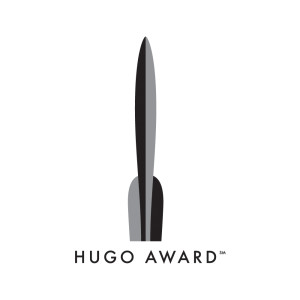 With the Hugo Award voting coming to a close at the end of July, I find my attention being pulled towards the historical data surrounding the Hugo. The Hugo Award started in 1953 at the 11th WorldCon in Philadelphia. Originally named the Annual Science Fiction Achievement Award, the award’s unofficial name, the Hugo, became official in 1992.
With the Hugo Award voting coming to a close at the end of July, I find my attention being pulled towards the historical data surrounding the Hugo. The Hugo Award started in 1953 at the 11th WorldCon in Philadelphia. Originally named the Annual Science Fiction Achievement Award, the award’s unofficial name, the Hugo, became official in 1992.
The award, as you probably already know, is named after the founder of Amazing Stories, Hugo Gernsback. Many in the industry consider the Hugo one of the most prestigious awards presented annually.
As some of you already know, I have an inherent compulsion for numbers and statistics. With that in mind, I bring you my continued parade of Hugo Award statistics from across the years.
This latest installment includes statistics from the Best Novel category and three other fiction categories: Best Short Story, Best Novelette, and Best Novella. Once again, I have included the Retro Hugos in my statistics. (Retro Hugos are those awarded 50, 75, or 100 years after a year a WorldCon was held and no Hugos were given. So far only four years have been permitted Retro Hugos: 1939, 1946, 1951, and 1954.)
Now on to the parade of trivia.

Page Count
- All novels nominated for the Hugo from 1939 to 1966 totaled 13,229 pages. (Note: Some novels were entered as zero pages when page count was not known.)
- There were 64 novels nominated from 1939 to 1966.
- The 14 volumes of The Wheel of Time, which were nominated in 2014 as one book, totaled 12,929 pages.
- All novels nominated from 2011 to 2015, not including The Wheel of Time, totaled 12,304 pages.
- There were 24 novels nominated from 2011 to 2015, not counting The Wheel of Time.
- The novels nominated from 1939 to 1966 average 240 pages each.
- The novels nominated from 2011 to 2015, not including The Wheel of Time, average 512 pages each.
- Robert Jordan’s The Wheel of Time novels average 852 pages each.
- Brandon Sanderson’s The Wheel of Time novels average 1184 pages each.
The 2015 Hugo Awards voting is now open.
2015 Nominations
- There are 20 nominations in four categories. (Best Novel, Best Short Story, Best Novella, Best Novelette)
- John C. Wright received four nominations.
- This is the first year John C. Wright has been nominated.
- John C. Wright received three nominations in the Best Novella category.
- John C. Wright becomes the first author to be nominated four times in the same year, breaking the previous record of three held by Michael Swanwick in 1999.
- Only Ann Leckie, Michael F. Flynn, and Thomas Olde Heuvelt have been nominated before 2015.
- Ann Leckie is the only author nominated who has won a Hugo.
- Michael F. Flynn has received seven total nominations. His first nomination came in 1988.
- Three of five novels nominated were published by Tor Books.
- Four of five novellas nominated were published by Castalia House.
- Three of five novelettes nominated were published by Analog Science Fiction and Fact.
- Two of five short stories nominated were published by Castalia House.
- Works published by Castalia House were never nominated before 2015.*
- Tor.com has only received one nomination in odd number years since 2011. They received no nominations this year.
- Tor.com has ten nominations in even number years since 2010.
- The novels nominated in 2015 average 540 pages each.
In 2014, the 1939 Retro Hugos were awarded.
1939 Nominations
- There were 20 nominations in four categories. (Best Novel, Best Short Story, Best Novella, Best Novelette)
- Nine of the 20 nominations were published in Astounding Science-Fiction and Astounding Stories. They are both the same magazine.
- Henry Kuttner, John W. Campbell, and Lester del Rey each received two nominations.
- Of the 17 different authors nominated 11 are either SFWA Grand Masters, Science Fiction and Fantasy Hall of Fame members, or both.
- The authors who were neither Grand Masters nor Hall of Fame members are H. L. Gold, Ayn Rand, John Wyndham, Robert E. Howard, and T. H. White.
- The novels nominated in 1939 average 209 pages each.
*Castalia House Publisher was established in 2014.
R.K. Troughton works as an engineer, developing tomorrow’s high-tech gadgets that protect you from the forces of evil as well as assist your doctor in piecing you back together. His passion for science fiction and fantasy has been fed through decades of consumption. He is the author of numerous science fiction and fantasy screenplays and short stories, and his debut novel is forthcoming. His articles appear every Wednesday morning on Amazing Stories.

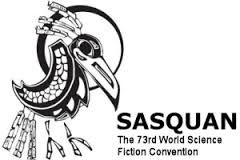


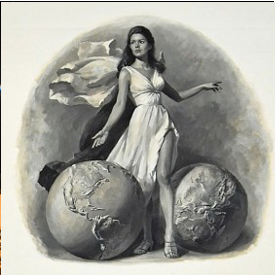


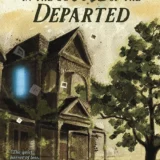

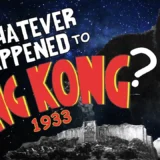
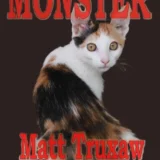
Recent Comments